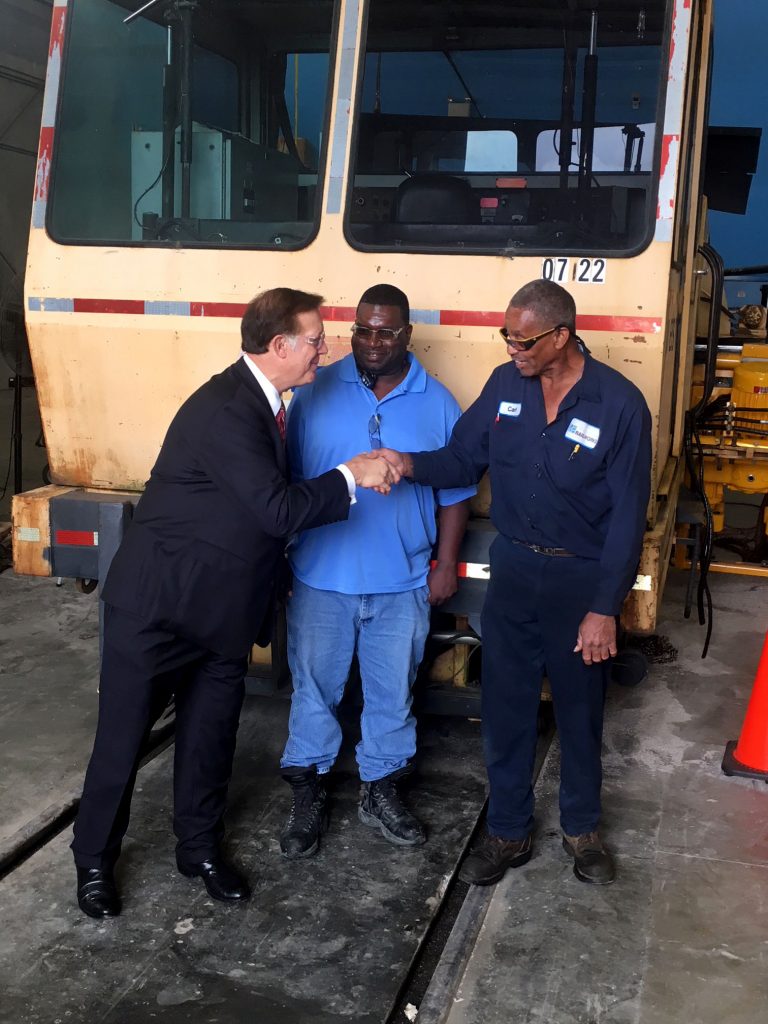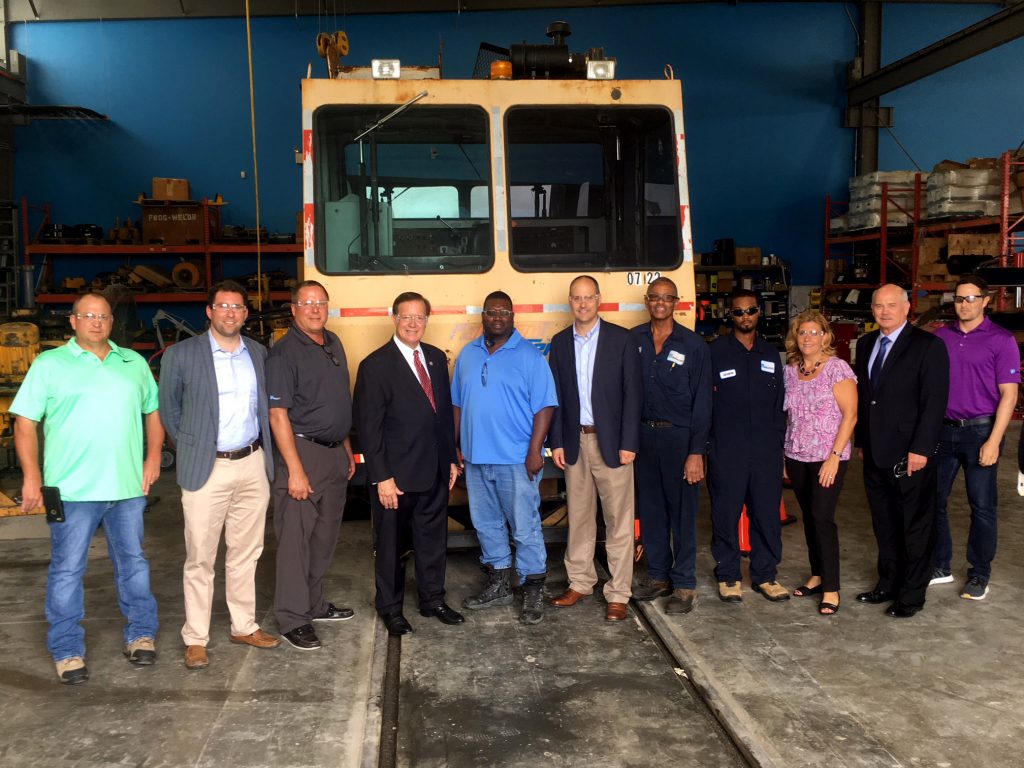House Transportation and Infrastructure Committee Member Rep. Weber tours Texas rail supplier.
Deer Park, TX — U.S. Representative Randy Weber (R-TX) toured RailWorks Track Systems’ facility in Deer Park today, with Bay Area Houston Economic Partnership President Bob Mitchell, grassroots advocacy organization GoRail, the Railway Engineering-Maintenance Suppliers Association (REMSA) and National Railroad Construction and Maintenance Association (NRC).

The group learned about RailWorks’ efforts as a leader in track and transit systems construction, rehabilitation and maintenance services for U.S. rail infrastructure. They also discussed railroad operations in the region and the industry’s current legislative priorities.
“Railroads are a critical part of the greater transportation network that supports our entire economy. Texas absolutely knows the importance of our railways. We have over 10,000 miles of freight track — that’s more than any other state,” Rep. Weber said. “Rail infrastructure like this — and the many supply companies, like RailWorks, who support it — moves Texas’ economy forward. Starting at the points of energy production and manufacturing and traveling to the Port of Houston and other distribution centers across the state, goods are being moved on our impressive rail network.”
Over the last four years alone, freight railroads have invested $100 billion to build, maintain and enhance the nationwide rail network. This ongoing private spending helps support the rail supply industry, sustaining thousands of jobs nationwide. RailWorks employs 240 in Texas at its Deer Park, Beaumont and Dallas-Fort Worth facilities and, with customers in 48 states, they employ thousands more across the U.S.
“RailWorks is honored to host Rep. Weber today,” said Kevin Riddett, CEO of Railworks Corp. “RailWorks has grown to one of the largest rail maintenance and construction companies in Texas and throughout North America. We have invested heavily in the economic growth locally in Texas and look forward to continuing to support investment across the U.S. and Canada in modernizing all types of railway infrastructure.”
“We’re pleased to be able to provide Rep. Weber with a first-hand look at the important role RailWorks plays in supporting the 140,000-mile rail network, from track inspections to emergency repairs to track rehabilitation,” said Jay Gowan, senior vice president at RailWorks. “Our work is enabled by private spending from freight rail companies, so today was a great opportunity to connect with a policymaker and ask him to oppose policies that would jeopardize railroads’ ability to invest.”
In a meeting prior to the tour, the group discussed how smart public policy enables private railroads to provide public benefits. Railroads have spent a staggering $660 billion since they were freed from overregulation in 1980, leading to a 79 percent decrease in the train accident rate and the doubling of productivity.

Free trade and the regional importance of NAFTA were also discussed. In Texas, the top export state in the country, NAFTA is especially vital to jobs and the economy. Data from the U.S. Chamber of Commerce suggests that withdrawing from NAFTA would put nearly 1 million Texas jobs at risk. Similarly, a recent study conducted by the Association of American Railroads (AAR) found that 42 percent of rail carloads and intermodal units and 50,000 rail jobs depend on international trade.
“Continued rail investment is key to continuing Houston’s prominent role in exporting American products to global markets. Freight rail infrastructure helps make it possible for the Port of Houston to serve as a job-creating engine that contributes to over 1 million jobs throughout Texas,” said Bob Mitchell, president of the Bay Area Houston Economic Partnership.
In Texas, 52 freight railroads maintain 10,539 track miles and employ 16,826 individuals.

